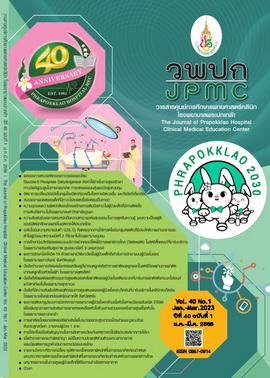Disciplinary Action and Consequences Occurring When Civil Servants Commit Offenses, Even When Not on the Job
Main Article Content
Abstract
The issue at hand is the case of a civil servant who was charged with a crime for personal actions outside of work hours involving the hoarding and resale of masks at an inflated price. In this instance, the Court of Appeals imposed a fine of 15,000 baht and a prison term of 2 years and 9 months with 2 years of parole. The case was decided by the Court of Appeals. The issue in this case is that the Court believed parole would be more beneficial than incarceration, despite the fact that a crime had been committed. Determining how disciplinary processes and disciplinary actions against civil servants in this situation may be sanctioned is the impetus for the study of the Administrative Court's ruling guideline on such matters. In the judgment of the Supreme Administrative Court NO. อ.628/2558, the ruling was that the case was final when the court sentenced the defendant to imprisonment. Thus, punishment must be inevitable regardless of whether or not the prison sentence was actually received.
Article Details

This work is licensed under a Creative Commons Attribution-NonCommercial-NoDerivatives 4.0 International License.
References
The Administrative Court. Supreme Administrative Court administrative case work black case No. A.549/2553 red case No. A.628/2558 [Internet]. 2016 [cited 2022 Sep 18]. Available from: https://www.admincourt.go.th/adminCourt/m/suitdetail.php?id=F9B038593AB412C74E223F5A5BE8720E&q=+%E0%B8%AD.628%2F2558
Office of the Civil Service Commission. CSC rules on ordering civil servants to be discharged from government service Lack of general qualifications or having prohibited characteristics In the case of incompetence defect in duty or inappropriate behavior in case of taint and in case of imprisonment for an offense committed through negligence or a misdemeanor [Internet]. 2013 [cited 2022 Sep 18]. Available from: https://www.ocsc.go.th/sites/default/files/attachment/circular/w10-2556_0.pdf

